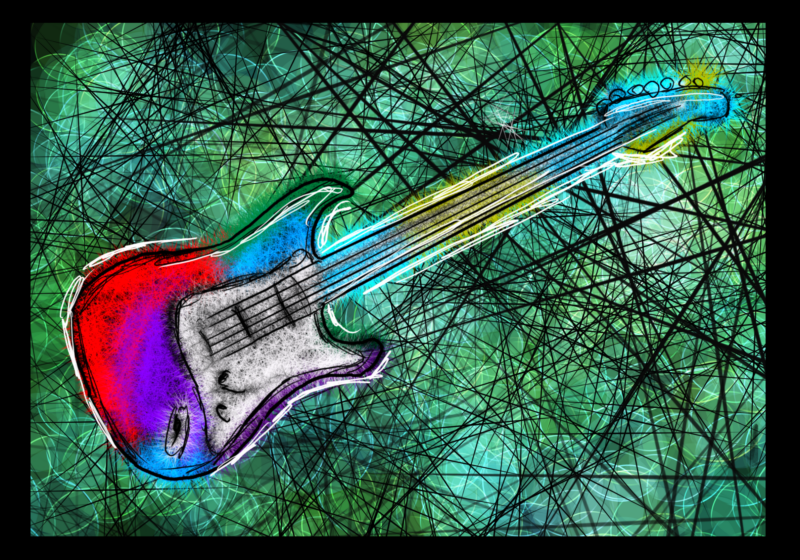Late last month, before they released their seventh full-length album, “Fading Frontier,” the indie rock band Deerhunter put an interactive map of their influences on their website. The concept map, which was signed “B. Cox”—the moniker of the band’s singer, Bradford Cox—included such eclectic sources as Pharaoh Sanders, Tom Petty, “souless new car smell” and “decline of music industry” (sic).
As albums go, “Fading Frontier” is uncompromisingly honest. It’s a 36-minute long swirl of melancholia and dense instrumentation, and is a complex conversation about nostalgia and its very human effects. In short, it’s everything indie rock should be.
Moreover, it’s a plea for honesty in an industry beset by masked performers (sometimes literally, sometimes metaphorically) and the not-so-subtle drones of corporate capitalism.
The album’s first song, “All the Same,” sets the mood, with Cox detailing what it’s like to just—without metaphor, without pretension—exist.
Throughout the album, Cox laments a changing America and a changing self. In the second song off the album, “Living My Life,” Cox laments a changing America. Over a backdrop of guitars, Cox sings, “I’m off the grid / I’m out of range / And the amber waves of grain / Are turning gray again.” The song is neither pretentious nor is it inaccessible, and this is how the band approaches much of the rest of the album.
On “Breaker,” the third song, Cox sings with guitarist Lockett Pundt, and their lyrics warp the imagination of the listener, juxtaposing strong ocean currents and the powerlessness of humanity with the dying stars that he sees when driving at night. That’s not a bad thing, at least for Cox, as he explains: “Jack-knifed / On the side-street crossing / I’m still alive / And that’s something / And when I die / There will be nothing to say / Except I tried / Not to waste another day / Trying to stem the tide.” The song, which was the second single off the album, features a guitar melody front-and-center. However, Cox sings in a general monotone, and the composition is beset by melancholy.
On “Take Care,” there’s a lurking synthesizer, operated by Broadcast’s James Cargill. It just about transforms the four-minute-long song into the realm of dream-pop, where it stands bare and almost disemboweled.
“Leather and Wood,” which follows “Take Care,” is perhaps the album’s most disturbing song, with Cox’s warped vocals fading in and out. When Cox concludes the song with the fractured lyrics “I drove my car over the edge / The leather and the wood / Formed a ledge / I believe we can fly / I believe anything is real / I believe we can die / I believe we can live again”, it’s hard to see this as anything but an allusion to the December 2014 car accident that sent him to the hospital. Cox has provided little information about the accident in the interviews.
Deerhunter is known for its experimental brand of indie music, one long-beloved by the indie music machine. In an August interview with Pitchfork—in which Cox mentions the nostalgia that comes and goes in his life—he notes that the album is his 71-year-old father’s favorite thus far, because, among other things “It’s really much more musical.” That’s true, and the accessibility of the album is one of its strengths.
The album’s cover, “Zuma #25,” is a 1978 photo by artist John Divola, and comes from a series of photographs documenting the destruction of a beachside home that is used by firefighters to train. In the photo, we see rubble and the colorful metal frame of the house. But, perhaps more hypnotizing is the ocean, pure blue and extending as far as the eye can see.
Schaffer is a member of the class of 2016.





